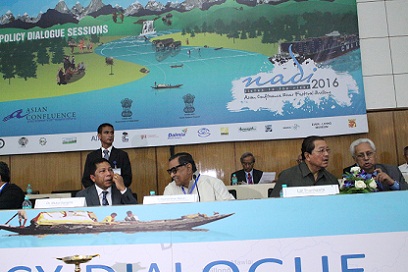
SHILLONG, JULY 15: Apart from reviving the ancient means of transportation, a lot was stressed on the importance of ‘joint river management’ by neigbouring countries at the first ever Nadi 2016 festival.
Organized by the Asian Confluence, the two-day Nadi 2016 festival under the theme – ‘listen to the river’, which kick-started on Friday and was inaugurated by the Chief Minister of Meghalaya Mukul Sangma.
The festival aimed at having a political dialogue for fostering connectivity, trade links and sharing of environmental issues.
Representatives from neighbouring countries like Bangladesh, Bhutan and Nepal have call for joint river management as they opined ‘they (rivers) are important for future development’.
In his speech, Syed Muazzem Ali, the High Commissioner of Bangladesh in India said, “Rivers requires sustainable joint management…the sooner we understanding this, the better.”
Referring to the sad experiences of the world, he said, “Before it’s too late let us try to save our rivers.”
Ali said that industrialization and building of hydroelectricity power plants are good but this has to be done in a systematic manner otherwise it will be like those many projects which never produce the result as per their original plans.
Lamenting that channel of many rivers have become narrowed, he said, “Let us revive the rivers for connectivity, trade and tourism by organizing awareness to those having direct involvement on the important of rivers for future development.”
Echoing similar views, former Ambassador of Bhutan to India, Dago Tshering said while sources of safe drinking water are shrinking, rivers being polluted by toxic chemicals are also increasing in many parts of the region.
He also said in many continents, water is getting securitization because of the burdening population, urbanization and industrialization adding therefore there is a need for regional and sub-regional cooperation on this matter.
On the other hand, Shahriair Alam, MP, MOS Ministry of Foreign Affairs, Bangladesh said that 2/3rd of the rivers suffered harm from numerous pollution and many great rivers do not reach the ocean anymore.
Wishing that the word ‘rivals’ be turned to ‘rivers’, Alam said, “All international rivers create a degree of tension due to history, economy and environmental factors.”
He however said that India and Bangladesh relationship has matured and the North East region has a special role in occupying that important space of all Indo-Bangla bilateral relations.
Stating there is no denying on the important of joint management of rivers, he said rivers can act as catalyst for broaden relationship in term of connectivity, trade and others.
In his address, High Commissioner of India to Bangladesh Harsh Vardhan Shringla informed that the forum of Bangladesh, Bhutan, India and Nepal (BBIN) has decided to form the joint committee and is examining many issues.
“The Act East Policy is an important aspect of foreign policy and we need to discuss on how river connect us and foster connectivity…Rivers are important aspect of relationship,” he said.
Pointing out that border haats have been successful model, he said, “We will be enhancing the number of border haats to 25.”
Delivering the inaugural address, Chief Minister Dr. Mukul Sangma said that the festival through dialogue and engagement with the stakeholders would pave the way for effective convergence and “actionable” for using rivers for mutual benefit and prosperity in the region.
He was of the view that rivers are not only source of prosperity, but a source of disaster and conflict and referred to the River Teesta hurdle with a sense of sadness as the NE states being land locked have no access to seaports and expressed hope that this kind of platform would facilitate to bring solutions to such problems. “We need to look at holistic system of managing our rivers and have a comprehensive action plan involving all the stakeholders to ensure that the rivers through scientific usage become a source of prosperity to all through trade and commerce and other activities.
Stating that every livelihood activity revolves around sources of water, the Chief Minister said that every livelihood activity around the sources of water can have both negative and positive impact on the ecosystem. Therefore it is important to ensure that everyone who are in upstream area understand the ramification of their activities, he said. Stressing on the importance of waterways for connectivity, he highlighted the challenges of upgrading the roads vis-à-vis land acquisition, but just scientific approach was needed to use the natural course of rivers for waterways which is the cheapest and most environment friendly, he said.
Speaking of many possibilities for mutual benefit of the region, the Chief Minister called for reviving the river routes that once existed and were so efficiently managed in the past and expressed his happiness that National Waterways Authority of India has approved for inland waterways to connect with Bangladesh through Brahmaputra in the northern slopes and other rivers in the southern slopes of Meghalaya. “And to ensure that the hydrology of these rivers remain sustainable, we also need to see that the State is capable of taking care of the sustainability of the livelihood of the people who are in upstream and catchment areas”, he added.
He informed the gathering about the programme conceptualized by the State government based on Green Economy because “we think about the people who are affected by what we do in the upstream”, he said, adding there is a need to integrate our approach and convergence of ideas to enrich ourselves through such platforms.-By Our Reporter







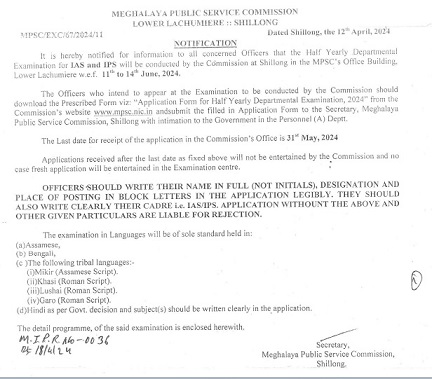






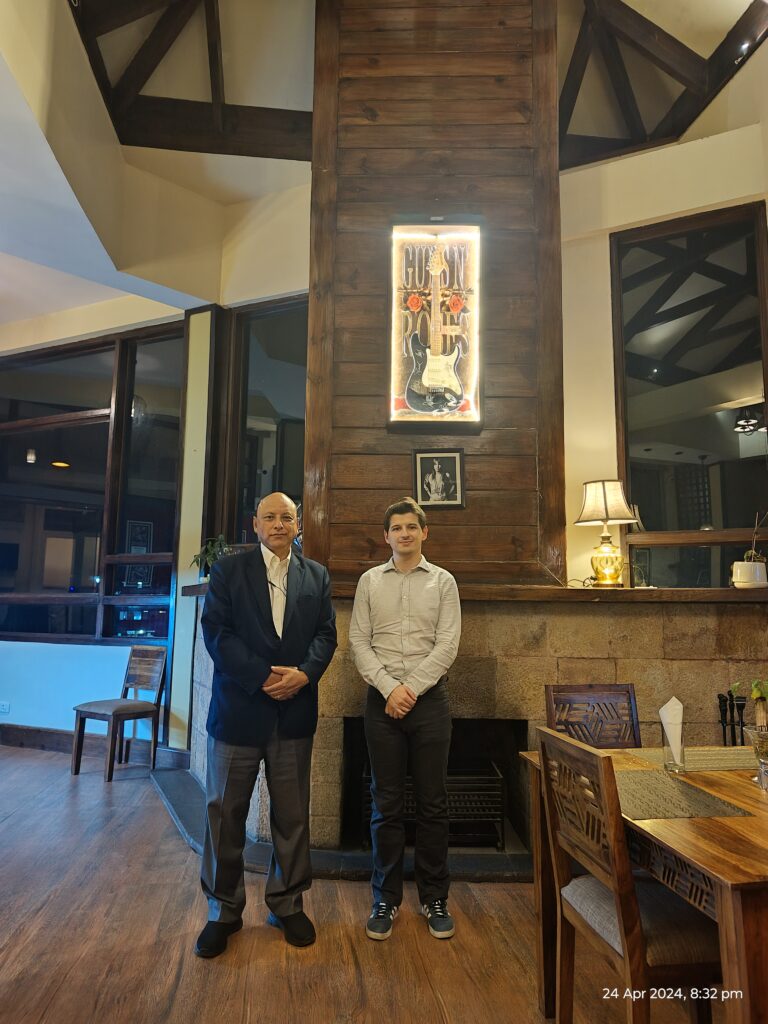
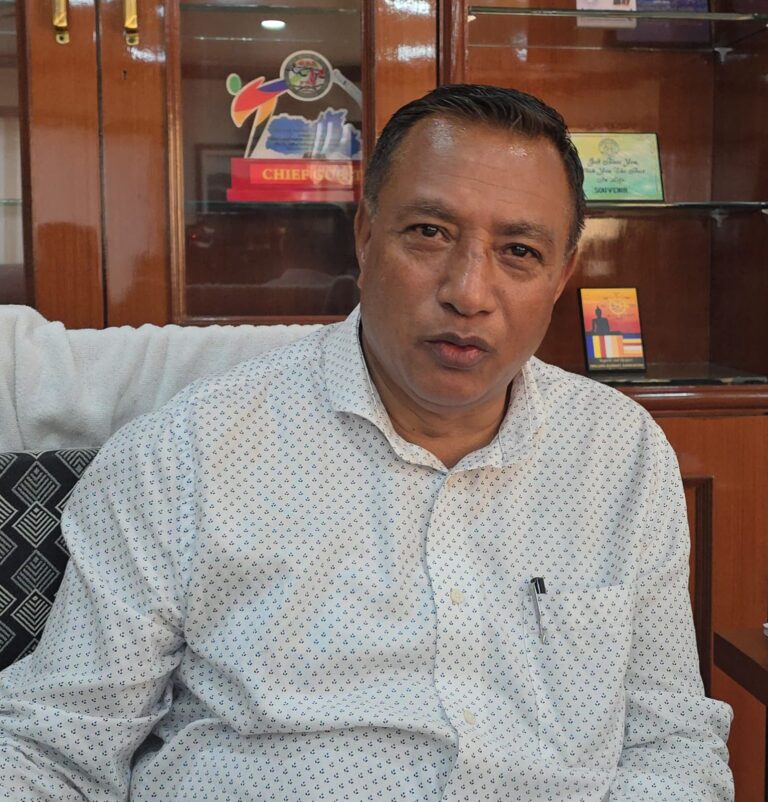
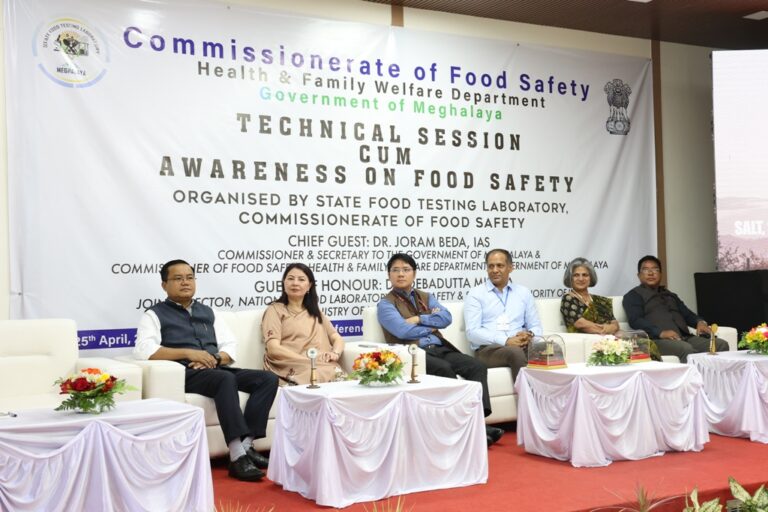
+ There are no comments
Add yours